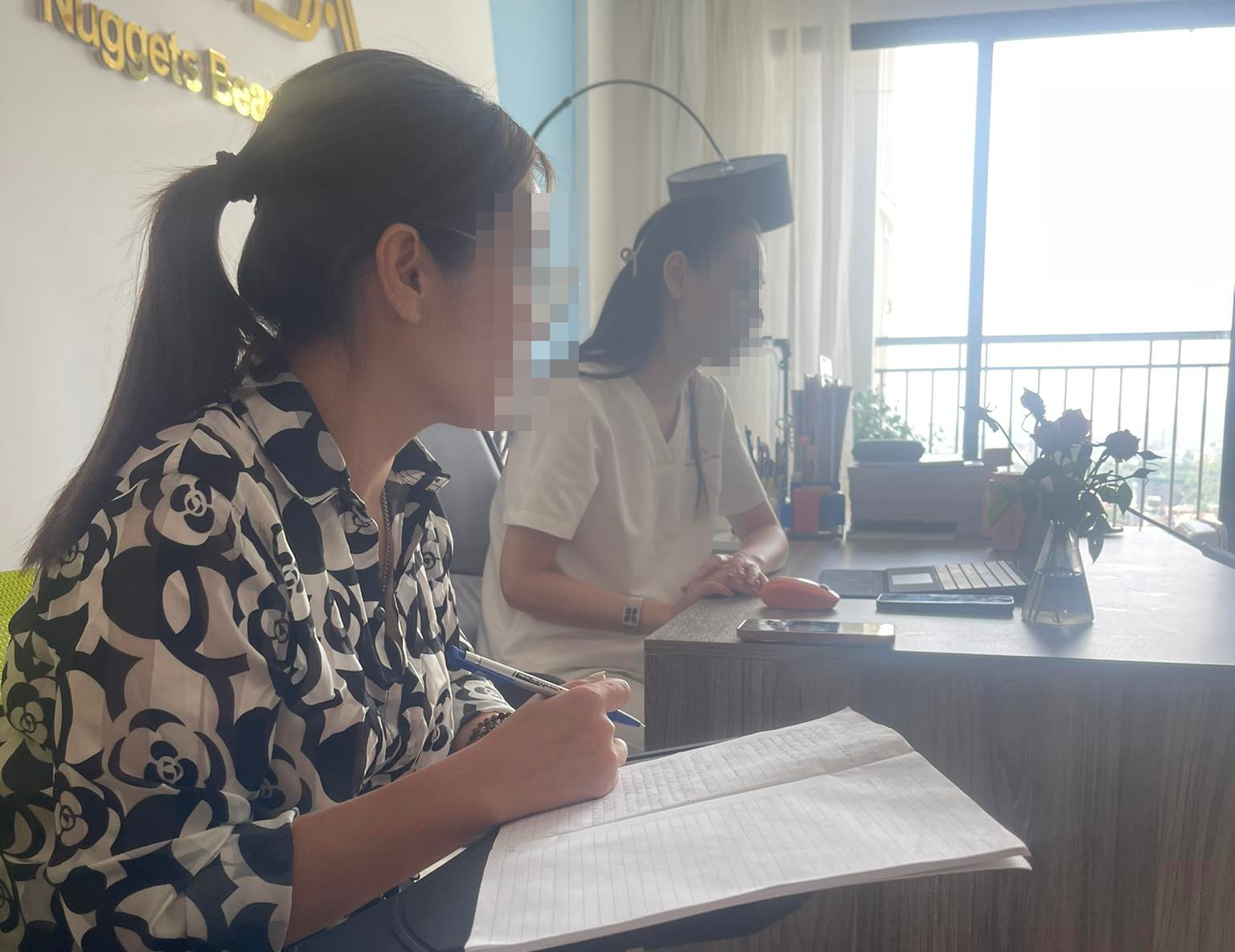
Filler injection services are being advertised everywhere, from spas and barber shops to street tea shops. And that is why many complications have been reported recently, including blindness and even death. Most recently, a girl from Ca Mau died following a filler injection operation at a hotel in HCM City.
Under current regulations, spas, skincare and hairdresser establishments are not allowed to provide filler and botox injections services. Only dermatology, plastic surgery clinics and hospitals can do this kind of operation. The establishments that provide the service must have a signboard with a clear statement that says they are specialized clinics and their doctors have practice certificates.
However, more spas providing injection services are opening.
M.T.H. from Thai Binh said she runs a shampoo and skin care shop, but she wants to expand her business. She decided to attend a training course on filler and botox injections in Hanoi. After two months, the woman said that she can carry out simple operations and plans to attend another course to be able to carry out operations on the nose and eyes.
Asked if she has practiced to deal with cases of emergency, H said that trainers showed her what she needed to do if something occurred. H can also seek support from trainers if necessary. She believes this is an easy operation that everyone can do if they undergo training.
H said she had experimented with operations on models and no trouble had occurred, so she is confident to begin providing the service.
A VietNamNet reporter visited a training establishment at an apartment block at No 87 Linh Nam in Mai Dong ward, Hoang Mai district, in Hanoi and registered for a training course on skin care and filler injection.
C.A, the owner of the establishment, told VietNamNet she was a physician and that she trains learners from Hanoi and northern provinces. Several thousand attend her training courses every year.
C.A. said a basic training course costs VND13 million. Learners have 3-day theoretical training with teachers. After that, they practice on mannequins and then on real models. As for theoretical lessons, learners can choose either offline or online hours. C.A. is the head teacher in charge of both theoretical and practical lessons.
C.A. said that it is easy to do the injection. C.A. promised to find models for learners to practice on.
According to the trainer, after practicing the operation, learners are granted a practice certificate and can open a shop and provide the service at home. However, she warned that learners can provide the service only "underground".
C.A. told the learners how to circumvent regulations to carry out operations on clients. “You’d better leave injection tools, products and chemicals at home. Only when clients contact and place orders should you bring the tools to the shop, in case state agencies take unexpected inspection tours,” she said.
In Trung Hoa residential quarter in Cau Giay district, Hanoi, a VietNamNet reporter was offered choices, including training courses for 1, 3 or 6 months. The tuition varied, from VND8 million to VND20 million, depending on the duration. And no matter how much the tuition, all graduates of the training courses "will be able to perform this kind of operation" as promised by the owner of the training establishment.
According to H, a consultant at the center, learners need one month on average to learn theory and practice on 2-3 models to be able to become skilled. H said that if learners want to have real medical certificates, the center would send learners’ profiles to a junior college, where learners would have to study for one more month and attend an exam to get a certificate.
However, H warned that the certificates would only say that the certificate holders know how to inject and drip-feed, and they will not be useful if the holders want to open beauty salons. In general, everyone has to "circumvent the law" to "earn money".
Phuong Thuy